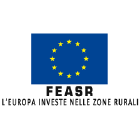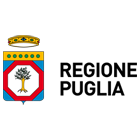P
P
Participatory local development CLLD - SLTP
Participatory local development directly contributes to the balanced territorial development of rural areas, one of the general objectives of rural development policy. It is implemented through community led local development (SLTP), a method to elaborate and implement local development strategies (OSH), based on the bottom-up approach; V. C. M. : Evaluation Controllability Measures - art. 62 EU Reg. n. 1305/2013.
Paying Agency (PA)
Body responsible for payments of transactions represented by AGEA (Agency for Agricultural Payments). AGEA is responsible for the implementation and definition of procedures for the collection and processing of payment requests, the execution and accounting of payments, the supply of technical, economic and financial data to monitoring systems, the performance of controls required by EU legislation, the presentation of the necessary documents in the time and in the form required by EU legislation, the accessibility of documents and their storage, collaboration in the definition of operational provisions.
Permanent pasture (Article 2(2) of Regulation (EC) No 796/2004)
Land used for the cultivation of grasses or other herbaceous forage plants, cultivated (sown) or natural (wild), and not included in the crop rotation of the holding for five years or more. The transformation of permanent pasture areas to other uses is prohibited in areas of recognised environmental value (Parks, Special Conservation Areas, Special Protection Areas, Sites of Community Importance); in addition, the transformation of meadows and natural pastures as identified by the Regional Territorial Landscape Plan (PPTR, approved with DGR no. 176 of 16 February 2015) is subject to the disciplines of the Plan (art. 66 Technical Regulations for Implementation PPTR).
Pilot project
Project that gives concrete answers to the enterprises promoting the experimentation and the verification of the applicability of technologies, techniques and practices in relation to the geographical and/or environmental contexts of the region. This intervention allows to verify and test process, product and organizational innovations already developed by the research but still to be contextualized in the productive realities and in the Apulian soil and climate environments.
Prevention
Implementation of phytosanitary measures to prevent or delay infection of the bacterium Xylella Fastidiosa.
Priorities
The objectives of rural development policy, which contribute to the achievement of the Europe 2020 strategy for smart, sustainable and inclusive growth, are pursued through six EU priorities for rural development as set out in Article 5 of Regulation (EU) 1305/2013, which in turn set out the relevant thematic objectives of the Common Strategic Framework (CSF) as set out in Article 10 of Regulation (EU) 1303/2013.
Programming document
Programma di Sviluppo Rurale (P.S.R.) 2014-2020 of the Apulia Region, approved by Decision of the European Commission n. C (2015) 8412 of 24/11/2015 and by the Apulian Regional Council by Resolution n. 2424 of 30/12/2015 and subsequent Version 6. 0 adopted by Commission Implementing Decision C (2017) 7387 of 31. 10. 2017 - Version 6. 0 adopted by the EU. (Last modified date: 07/11/2017).
Public notice
Formal act through which the Region defines the rules for access to public financing. The notice shall indicate, inter alia, the selection of projects submitted, the public funds available, the percentages of contribution, constraints and limitations.
Pure Artificial Forest
All the stand in question, including renewal, is introduced by man by sowing or planting seedlings produced in nurseries or obtained by vegetative propagation (rooted cuttings, micro-propagation) (source: “Selvicoltura generale" P. Piussi, UTET).



